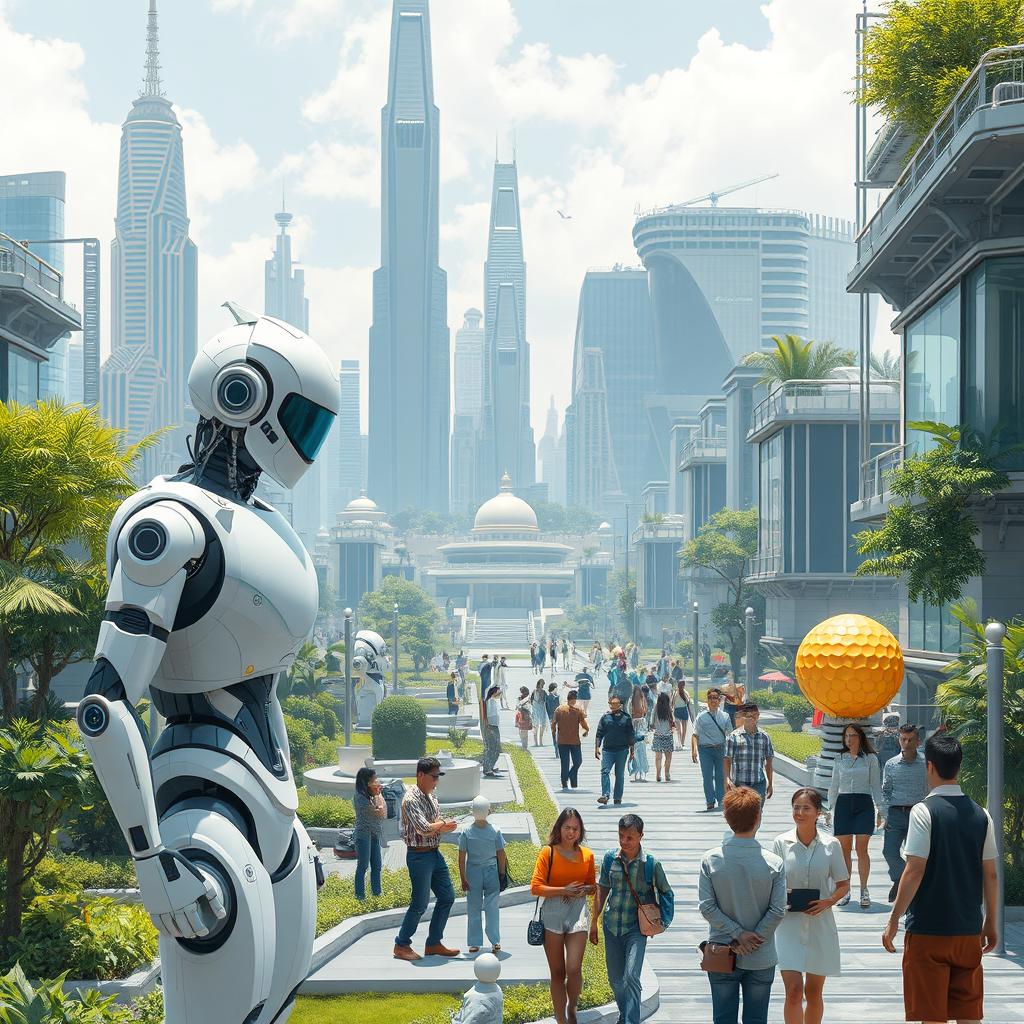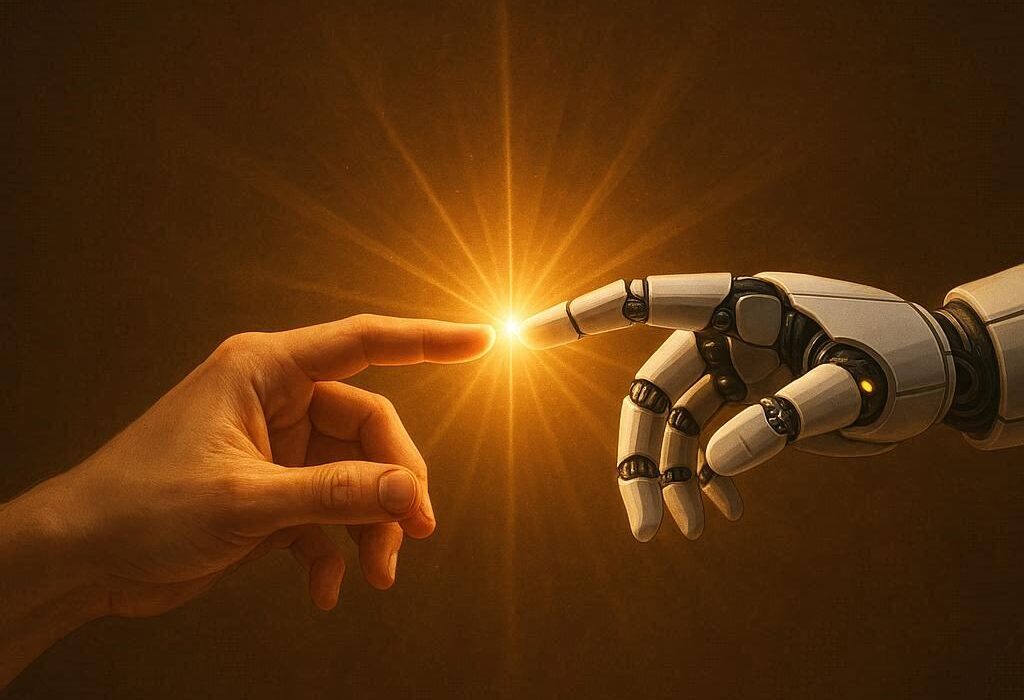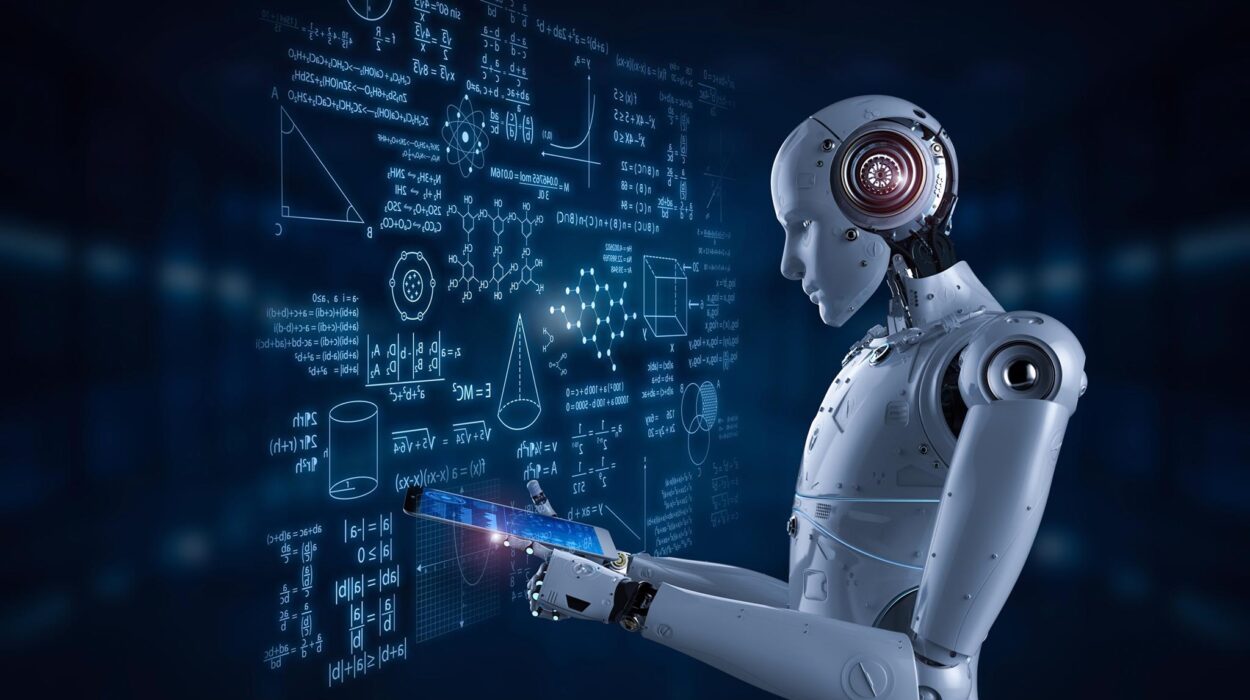For as long as history has been recorded, human societies have been governed by human leaders. From monarchs and emperors to presidents and prime ministers, politics has been defined by fallible individuals navigating the complexity of power, justice, and responsibility. Yet, in the twenty-first century, a profound question has begun to emerge: could an entire nation one day be run by artificial intelligence? What was once the province of science fiction has gradually shifted into the domain of serious debate, as AI systems now shape economies, monitor social life, and even make judicial decisions in pilot programs around the world.
The idea of an AI-governed nation is not simply a technological curiosity; it is a question about the future of humanity itself. Would handing over political decision-making to machines create a world of fairness, efficiency, and rational governance—or would it entangle us in an inescapable web of algorithms stripped of empathy and human dignity? This question forces us to imagine the intersection of science, philosophy, and politics in a way that challenges the very definition of what it means to govern.
The Rise of Algorithms in Human Affairs
To understand whether nations could be governed by AI, we must first recognize how deeply algorithms already shape governance today. Governments around the world increasingly use machine learning to analyze economic data, predict crime hotspots, and allocate welfare resources. Financial markets, once dominated by human traders, are now largely driven by high-frequency trading algorithms. Immigration systems in some countries rely on predictive analytics to determine visa approvals. In Estonia, often heralded as the world’s most digitally advanced nation, nearly all governmental services—from taxes to voting—are handled through online platforms that employ algorithmic decision-making.
The trajectory is clear: as societies grow more complex, the burden of governance outpaces human capacity. No parliament, cabinet, or ministry can process the billions of data points required to understand modern economies or environmental systems. AI offers not only speed but the possibility of uncovering patterns invisible to human analysts. In this sense, AI is not merely an assistant to governance but a potential successor.
Imagining an AI State
What would it mean for an entire nation to be governed by artificial intelligence? The answer depends on how we imagine the role of AI in political life. Some envision AI as a “digital advisor,” a system that supports human leaders by providing evidence-based guidance, thereby minimizing the distortions of ideology, corruption, or emotion. Others propose more radical futures in which AI does not merely advise but decides: laws could be drafted by algorithms, budgets allocated by predictive models, and justice administered by machine-led courts.
In such a society, the machinery of governance would be embedded in networks of data collection and computation. Elections could be replaced by feedback loops in which citizens continuously share their preferences through digital interfaces, aggregated in real time by AI systems. Political debate, traditionally mediated by rhetoric and persuasion, might instead become a negotiation of values encoded in algorithms. In the most extreme visions, human politicians might vanish altogether, their roles absorbed by intelligent systems programmed to act in the collective interest.
The Promise of Algorithmic Governance
The appeal of AI governance lies in its promise to overcome the failures of human politics. Throughout history, nations have suffered under the weight of corruption, incompetence, and authoritarian ambition. AI, in contrast, is often imagined as impartial, immune to greed, and capable of processing information with a speed no human bureaucracy could match. An AI government could, in theory, allocate resources with perfect efficiency, predict economic crises before they unfold, and prevent social unrest by anticipating grievances before they erupt.
Consider public health: during the COVID-19 pandemic, governments struggled with delayed responses, political polarization, and misinformation. An AI-led system, fed with global epidemiological data, could theoretically have detected the outbreak earlier, designed targeted containment strategies, and balanced the trade-offs between lockdowns and economic stability with mathematical precision. Similarly, climate policy—currently bogged down by competing national interests—could be optimized by AI models capable of coordinating global carbon reductions to meet scientifically defined goals.
To a society weary of political gridlock, the dream of AI governance shines with the promise of rationality, fairness, and efficiency. It suggests a world in which leadership is no longer bound to the flawed personalities of individuals but entrusted to systems built on data and logic.
The Shadows of Machine Power
Yet, this vision carries shadows as deep as its light. AI systems, for all their power, are not free of bias. Algorithms reflect the data on which they are trained, and data itself carries the imprint of historical injustices. Predictive policing algorithms, for example, have been shown to disproportionately target minority communities because they are trained on records shaped by decades of biased law enforcement. If such systems were scaled to govern entire nations, they could entrench inequality under the illusion of objectivity.
There is also the problem of transparency. Many advanced AI models operate as “black boxes,” producing outputs that even their creators struggle to interpret. If citizens cannot understand how decisions are made—why a loan is denied, why a sentence is imposed, or why a budget is allocated—the principle of democratic accountability is undermined. Governance is not only about outcomes but about legitimacy, and legitimacy requires explanation.
Moreover, the question of values cannot be solved by computation alone. Decisions about welfare, justice, or war are not merely technical but moral. Should an AI system prioritize economic growth over environmental preservation? Should it value the rights of individuals over the stability of the collective? These are not questions with objectively correct answers; they are the contested heart of politics itself. To imagine a world entirely run by AI is to imagine a politics stripped of its human dimension, where debates of meaning are replaced by optimizations of efficiency.
Lessons from History: Technology and Power
The prospect of AI governance cannot be separated from the lessons of history. Every major technological innovation has reshaped political power. The printing press gave rise to mass democracy, railroads transformed empires, and radio and television redefined propaganda. In each case, the new medium of communication amplified some voices while silencing others, redistributing influence in ways often unforeseen.
AI is no different. The power to design, train, and deploy algorithms rests in the hands of those who control data and computational infrastructure. If a nation were governed by AI, the question of who programs the system becomes paramount. Would it be the state itself? A consortium of corporations? An international body? Or a select group of engineers whose values silently permeate the code? Far from abolishing power struggles, AI governance could simply relocate them to new and less visible arenas.
The Fragility of Trust
A nation run by AI would depend on trust—trust not only in machines but in the institutions that build and maintain them. Citizens would have to believe that the algorithms governing their lives were fair, secure, and incorruptible. Yet trust is fragile, and history offers countless examples of technological systems failing in unexpected ways. A single error in an AI’s decision-making could provoke widespread outrage; a breach of its data systems could undermine the legitimacy of an entire government.
Imagine an AI system that misallocates food supplies, leading to shortages in certain regions. Even if the mistake were quickly corrected, the damage to trust could be irreversible. Humans may forgive flawed leaders, but they are less forgiving of machines that present themselves as infallible. In this sense, the very perfection we demand from AI governance could become its greatest weakness.
Hybrid Futures: The Partnership of Humans and Machines
Perhaps the most likely future is not one in which AI replaces human governance entirely but one in which it becomes a partner, augmenting human decision-making rather than supplanting it. Just as modern medicine relies on both physicians and diagnostic algorithms, politics may evolve into a symbiosis of leaders and machines. AI could process vast data streams to identify policy options, while human leaders provide moral judgment and empathy.
In this hybrid model, elections might still exist, but citizens would vote not only for representatives but for the values they wish to see encoded in AI systems. Parliaments might debate not just laws but the parameters by which algorithms operate. The machinery of governance would thus be both technical and moral, a collaboration between human intuition and machine precision.
The Moral Dilemma of Surrender
At the heart of the debate over AI governance lies a deeper philosophical question: should we surrender the act of governing to machines, even if they could govern better than us? To govern is not only to manage resources but to wrestle with the human condition—our conflicts, passions, and aspirations. Politics, for all its flaws, is a stage upon which humanity expresses its collective will. To hand this stage to algorithms may create efficiency but risk erasing the very essence of democracy: the messy, imperfect, but deeply human act of deciding together.
Einstein once remarked that “politics is for the moment, but an equation is for eternity.” Yet politics is also where humanity asserts its freedom, its agency to choose paths not dictated by necessity but by imagination. An AI might optimize a nation’s wellbeing, but would it allow citizens to dream, to err, to pursue ideals that defy logic? The danger of AI governance is not only tyranny by machines but tyranny by perfection—the loss of the freedom to be human.
A Future Yet to Be Written
Could entire nations be run by AI in the future? The answer is neither simple nor singular. Technologically, it is increasingly possible. Algorithmic systems already guide decisions once reserved for humans, and their scope will only grow. Politically, the appeal of AI governance will intensify as citizens lose faith in corrupt or ineffective human leaders. Philosophically, however, the debate remains unresolved, for the question touches not only on efficiency but on the meaning of freedom, justice, and humanity itself.
The future may not be one of AI rulers or human rulers, but of a constant negotiation between the two. Nations may adopt hybrid systems where algorithms guide but humans decide, where data informs but values steer. In this future, the challenge will not be to replace humanity with machines but to ensure that technology amplifies our best qualities rather than diminishing them.
The story of governance has always been the story of human ingenuity shaping tools of power. Whether the tool is parchment, printing press, or algorithm, it reflects not only our capacity to innovate but our responsibility to choose wisely. AI may be the most powerful tool of all, capable of running entire nations, but the question remains: will we let it, and if so, at what cost?
The destiny of AI governance is not predetermined. It lies in choices made today—choices about transparency, accountability, and ethics. In those choices, humanity will decide whether AI becomes the servant of democracy or its replacement. The future of nations, perhaps even the future of freedom itself, hangs in the balance.






